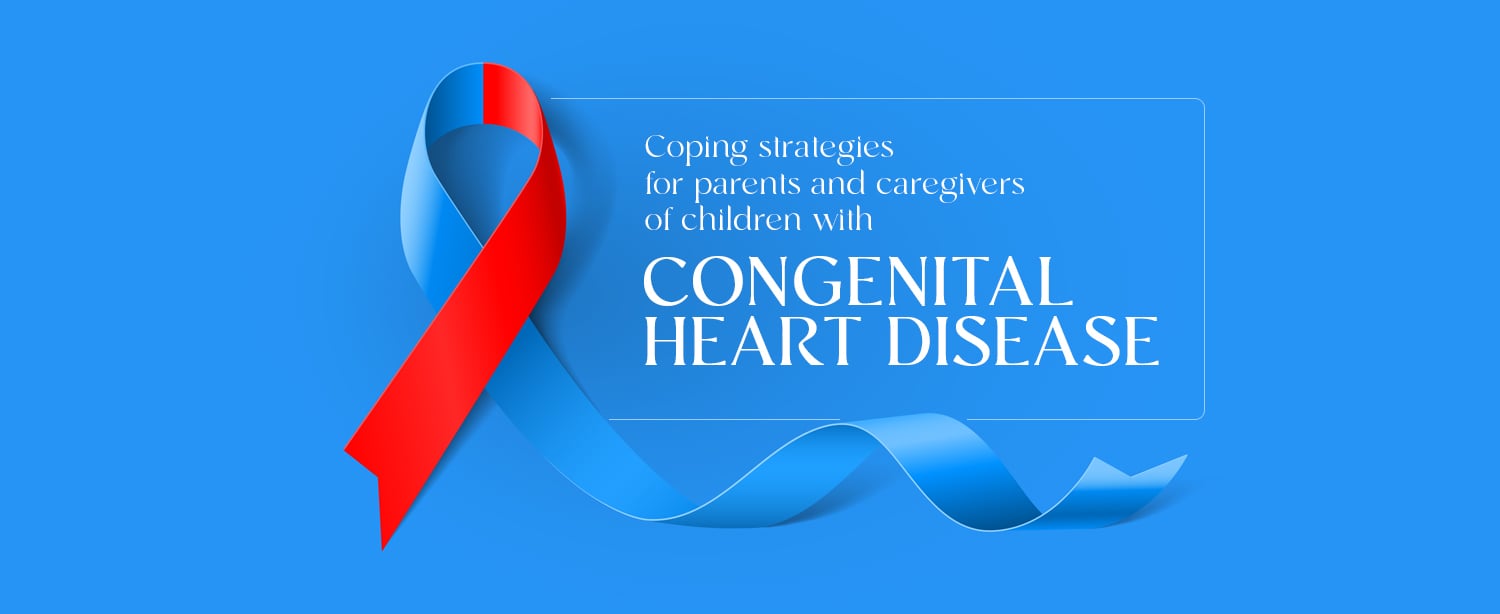Congenital heart defects (CHDs) stand as the most prevalent form of birth defect. They are present at birth and have an impact on the heart’s structure and functionality. They can disrupt the normal flow of blood through the heart and its distribution to the body. Ranging from mild instances, such as small holes in the heart, to severe cases involving missing or improperly formed heart components, CHDs present a spectrum of complexities. In India alone, more than 200,000 children are born annually with congenital heart defects, with a striking 20 percent necessitating life-saving interventions within their first year of life.
Unique Parenting Challenges
Parents of children with CHD face unique challenges, such as:
- Learning specialized parenting skills
In addition to the usual challenges and adaptations that come with welcoming a newborn, parents of infants with CHD often find themselves grappling with the unique circumstances of caring for a baby who might have endured lengthy stays in the Neonatal Intensive Care Unit (NICU) and may still rely on tubes or attachments to support their fragile bodies. - Living with persistent uncertainty
Even if their child no longer requires procedures, doctor appointments often stir up past memories and new worries. As children mature, parents naturally grapple with concerns about the ongoing risks associated with CHD and uncertainties surrounding their child’s lifelong care. The journey continues indefinitely requiring constant parental support.
Coping Strategies for Parents and Caregivers
Congenital Heart Disease (CHD) in children can be a challenging diagnosis for parents and caregivers to navigate. It requires a blend of medical management, emotional support, and lifestyle adjustments to ensure the best possible outcomes for the child. Coping with the complexities of CHD demands resilience and proactive strategies. Here are some helpful tips to follow:
- Educate Yourself
Understanding your child’s condition is crucial. Take the time to learn about CHD, its various types, potential complications, and treatment options. Knowledge empowers you to make informed decisions and effectively communicate with healthcare professionals. - Build a Support Network
You are not alone in this journey. Connect with other parents and caregivers of children with CHD through support groups, online forums, or local organizations. - Establish Open Communication
Foster open and honest communication with your child’s healthcare team. Ask questions, voice concerns, and actively participate in decision-making regarding your child’s care. Clear communication promotes collaboration and ensures that everyone is working towards the same goals. - Prioritize Self-Care
Caring for a child with CHD can be physically and emotionally taxing. Remember to prioritize your own well-being. Take breaks when needed, engage in activities you enjoy, and seek support from friends and family members to prevent burnout. - Maintain a Healthy Lifestyle
Encourage healthy habits for your child, such as a balanced diet, regular exercise (as recommended by your healthcare team), and sufficient sleep. These lifestyle factors can contribute to overall well-being and help manage potential complications associated with CHD. - Stay Organized
Managing appointments, medications, and treatment plans can be overwhelming. Keep a detailed calendar or planner to track appointments, jot down questions for healthcare providers, and record important information about your child’s health. - Advocate for Your Child
Be your child’s strongest advocate. Speak up for their needs, rights, and preferences within the healthcare system, school environment, and community. Ensure they receive appropriate accommodations and support to thrive. - Celebrate Milestones
Each small achievement is important. Whether it’s reaching a developmental milestone, successfully completing a medical procedure, or simply sharing moments of joy together, acknowledging these milestones can boost morale and strengthen your bond as a family. - Monitor Emotional Health
It’s natural to experience a range of emotions when caring for a child with CHD, including fear, anxiety, and sadness. Acknowledge your feelings and seek professional support if needed. Therapy or counseling can provide coping strategies and emotional resilience.
Congenital Heart Defect Treatment at Kokilaben Dhirubhai Ambani Hospital
Our Children’s Heart Centre stands as a premier healthcare institution, dedicated to delivering unparalleled care for neonates, infants, children, and adults grappling with a spectrum of heart conditions, from common to complex congenital defects. Equipped with state-of-the-art Heart Lung Machines for surgical interventions, ECMO for critical care, and advanced 3D Echo machines for precise diagnosis, the Centre ensures cutting-edge treatment modalities. Our team comprises highly skilled paediatric cardiologists selected from the nation’s finest talent pool. Reach out to our team of experts for specialized congenital heart disease treatment. Please find below our website details: https://www.kokilabenhospital.com/departments/centresofexcellence/childrensheart_hospital_in_mumbai/congenitalheartdisease.html


